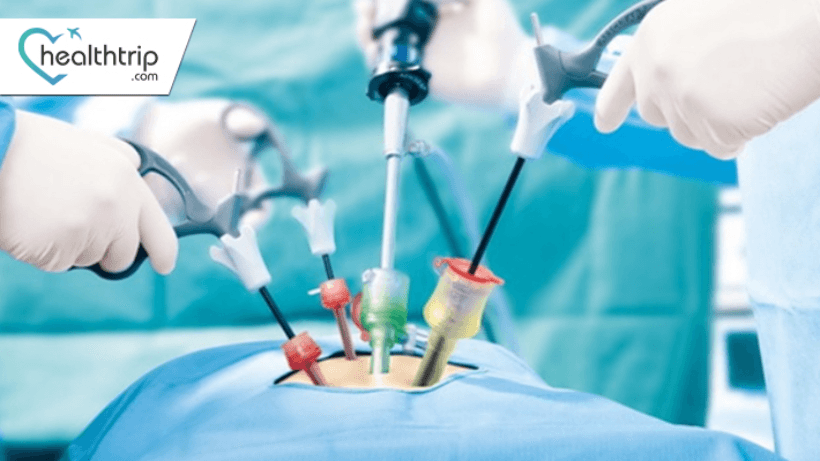
Liver Transplants in the UAE: Saving Lives, Restoring Health
19 Oct, 2023
 Healthtrip
HealthtripUnderstanding Liver Transplants
A liver transplant is a surgical procedure in which a diseased or damaged liver is replaced with a healthy one from either a deceased or living donor. Liver transplantation is typically considered when liver function has significantly deteriorated, often as a result of conditions such as cirrhosis, liver cancer, or acute liver failure.
Indications for Liver Transplant
Liver transplantation is a life-saving procedure considered when a patient's liver is severely compromised, and alternative treatments are insufficient. The following are common indications for liver transplant:
Most popular procedures in India
1. Cirrhosis
Cirrhosis is a late stage of scarring (fibrosis) of the liver caused by various liver diseases and conditions, such as chronic hepatitis, chronic alcoholism, and non-alcoholic fatty liver disease (NAFLD). When cirrhosis progresses to end-stage, a liver transplant may be necessary.
2. Hepatitis
Chronic viral hepatitis, including hepatitis B and C, can lead to liver damage and cirrhosis. In cases of advanced hepatitis, a liver transplant may be considered when the liver is no longer functioning effectively.
Wellness Treatments
Give yourself the time to relax
Lowest Prices Guaranteed!

Lowest Prices Guaranteed!
3. Liver Cancer
Liver transplantation can be an option for individuals diagnosed with hepatocellular carcinoma (HCC) under specific criteria. In these cases, a transplant may provide a chance for a cure if the cancer is detected early and meets specific criteria.
4. Biliary Atresia
Biliary atresia is a congenital condition in which a baby is born with blocked bile ducts. This condition, if not treated promptly, can lead to severe liver damage. Liver transplantation is often required to address the damage and restore liver function.
5. Acute Liver Failure
Acute liver failure is a sudden and severe loss of liver function, typically caused by viral infections, drug overdose, or other acute conditions. Liver transplantation may be a life-saving measure in cases of acute liver failure when other treatments are ineffective.Procedure
1. Pre-transplant Evaluation
Before a liver transplant, the patient undergoes a rigorous evaluation process. This includes medical history assessment, blood tests, imaging, and consultations with a multidisciplinary team of specialists. A compatible donor is also required, either from a living relative or a deceased donor.
2. Surgery
The actual transplant surgery involves the removal of the diseased liver and its replacement with the healthy donor liver. This intricate operation can take several hours, during which the medical team ensures the new liver functions properly.
3. Post-transplant Care
Recovery after a liver transplant can be lengthy, and patients need to remain in the hospital for a while. Immunosuppressant medications are prescribed to prevent the body from rejecting the new liver, and regular check-ups are scheduled to monitor progress.
Symptoms of Liver Disease
Liver disease can present with various symptoms, including:
- Fatigue
- Jaundice (yellowing of the skin and eyes)
- Unexplained weight loss
- Abdominal pain
- Dark urine
- Swelling in the abdomen and legs
- Nausea and vomiting
Recognizing these symptoms is crucial for early diagnosis and intervention.
Diagnosis
1. Blood Tests
Blood tests, such as liver function tests and viral hepatitis markers, are commonly used to assess the liver's health and identify potential causes of liver disease.
2. Imaging
Imaging studies like ultrasound, CT scans, and MRI scans are conducted to visualize the liver's structure and detect any abnormalities.
3. Liver Biopsy
A liver biopsy involves the removal of a small tissue sample from the liver for examination under a microscope. It can help determine the extent of liver damage and the specific type of liver disease.
Risks and Complications
Liver transplantation is a complex surgical procedure that offers a chance for a new lease on life for those facing severe liver disease. However, like any major surgery, it carries inherent risks and potential complications. Here are some of the key considerations:1. Organ Rejection
Organ rejection is a significant concern following a liver transplant. The recipient's immune system may recognize the new liver as foreign and mount an immune response against it. To prevent rejection, immunosuppressant medications are prescribed. These drugs suppress the immune system, but they also make the patient more susceptible to infections.
2. Infections
As a consequence of immunosuppressant medications, liver transplant recipients are more vulnerable to infections. The weakened immune system can struggle to fight off common viruses and bacteria, making post-transplant patients more susceptible to various infections.
3. Bile Duct Complications
Bile duct complications can occur after a liver transplant. These complications may include bile leakage, narrowing of the bile ducts (strictures), or damage to the bile ducts during the surgical procedure. In some cases, these issues necessitate additional procedures or interventions.
4. Bleeding
Surgical complications can lead to bleeding, which is a potential risk following a liver transplant. Excessive bleeding may require a return to the operating room to control the bleeding and address any vascular issues.
5. Kidney Problems
Liver transplant recipients are at an increased risk of developing kidney problems. This can be due to the stress of the surgery itself, as well as the use of certain medications, including immunosuppressants. Kidney function is closely monitored post-transplant, and kidney-related issues are treated promptly.
6. Long-term Side Effects
Immunosuppressant medications are typically required for life to prevent organ rejection. These medications, while essential, can have long-term side effects. They may increase the risk of certain health issues, such as cancer, diabetes, and bone problems. Regular medical follow-up and screening are necessary to manage and mitigate these potential long-term side effects.
Cost Benefits
The cost of a liver transplant in the UAE varies depending on the hospital and the individual patient's needs. However, it is generally considered to be one of the most expensive medical procedures in the world.
According to a recent article in the National News, the cost of a liver transplant in the UAE can range from AED 700,000 to AED 1 million (USD 190,000 to USD 270,000). This includes the cost of surgery, hospitalization, and medication.
The cost of a liver transplant may be higher or lower depending on a number of factors, including:
- The patient's age and overall health
- The type of liver transplant being performed (living donor or deceased donor)
- The hospital where the transplant is being performed.
- Any complications that arise during or after surgery
It is important to note that the cost of a liver transplant does not include the cost of pre-transplant evaluation, post-transplant follow-up care, or travel and accommodation expenses for the patient and their family.
Life After a Liver Transplant
Receiving a liver transplant is a life-altering experience that brings profound changes to a person's health and well-being. Life after a liver transplant is a journey filled with hope, renewal, and the opportunity to savor the beauty of life once again. Here are some key aspects of life post-transplant:
1. Improved Quality of Life
One of the most striking transformations after a successful liver transplant is the improvement in the recipient's overall quality of life. Many patients experience a significant reduction in symptoms, such as fatigue, jaundice, and abdominal pain, which were associated with their liver disease.
2. Renewed Energy and Vitality
Liver transplant recipients often find themselves with renewed energy and vitality. They can once again engage in activities they may have had to forgo due to their liver condition, whether it's playing with their children, traveling, or pursuing their hobbies and passions.
3. Regular Follow-Up Care
Post-transplant life involves regular follow-up care with a transplant team. These healthcare professionals monitor the recipient's health, adjust medications, and address any emerging issues. This ongoing care is crucial to ensure the long-term success of the transplant.
4. Immunosuppressant Medications
To prevent organ rejection, liver transplant recipients must take immunosuppressant medications for life. These medications help to suppress the immune system, making it essential for patients to adhere to their prescribed medication regimen. However, these drugs can have potential side effects, and their dosages may need adjustment over time.
5. Diet and Nutrition
A healthy diet and nutrition are essential components of post-transplant life. Transplant recipients often receive guidance from dietitians to maintain a balanced diet that supports their overall well-being and helps them avoid weight gain or loss.
6. Exercise and Physical Activity
Gradually reintroducing physical activity is part of post-transplant life. Exercise can help improve muscle strength, cardiovascular health, and overall well-being. However, it's essential to follow the guidance of healthcare providers to ensure a safe and gradual return to physical activities.
7. Mental and Emotional Health
The emotional well-being of liver transplant recipients is of paramount importance. Many individuals experience a wide range of emotions post-transplant, including gratitude, anxiety, and even survivor's guilt. Support from mental health professionals and support groups can be invaluable in navigating these emotions.
8. Support and Gratitude
Many transplant recipients express profound gratitude for the gift of life they've received. They often become advocates for organ donation, sharing their stories and raising awareness about the importance of becoming an organ donor.
Leading Hospitals:
1. Treatment Plan at Saudi German Hospital Jeddah
The hospital offers comprehensive treatment packages for liver transplantation. These packages typically include:

Treatment Package
- Inclusions: The package details what is covered, such as surgical procedures, post-operative care, medications, and follow-up appointments.
- Exclusions: These outlines what is not covered by the package, such as non-medical expenses and additional procedures that may be required due to complications.
- Duration: The package indicates the expected duration of the treatment, including the time required for the surgery and recovery.
- Cost Benefits: The package may provide insights into the financial advantages of choosing Saudi German Hospital Jeddah for liver transplantation, considering the quality of care and expertise available.
Life after a liver transplant is a journey filled with hope and a renewed appreciation for the beauty of life. At Saudi German Hospital Jeddah, liver transplantation is not just a medical procedure; it's a second chance at health and well-being. For those facing liver disease, it offers a path towards a brighter future. If you or a loved one is considering a liver transplant, consult with the hospital for personalized guidance and a tailored treatment planThe liver is one of the body's most vital organs, responsible for various critical functions, including metabolizing nutrients, detoxifying the blood, and producing essential proteins. When the liver is severely damaged or fails to function properly, a liver transplant can be a life-saving procedure. In this article, we will explore the intricate world of liver transplants, including the procedure, indications, potential complications, and the remarkable impact it has on patients' lives.
2. Treatment Plan at Aster Cedars Hospital
Aster Cedars Hospital offers comprehensive treatment packages for liver transplantation. These packages typically include:

Treatment Package
- Inclusions: The package details what is covered, encompassing surgical procedures, post-operative care, medications, and follow-up appointments.
- Exclusions: This outlines what is not covered by the package, such as non-medical expenses and additional procedures that may be required due to complications.
- Duration: The package indicates the expected duration of the treatment, including the time required for surgery and recovery.
- Cost Benefits: The package may provide insights into the financial advantages of choosing Aster Cedars Hospital for liver transplantation, taking into consideration the quality of care and medical expertise.
Life after a liver transplant signifies a new beginning, filled with hope and an enhanced appreciation for life. At Aster Cedars Hospital, liver transplantation transcends being a mere medical procedure; it symbolizes a second chance at health and well-being. For individuals grappling with liver disease, this medical facility offers a path to a brighter future.
3. Treatment Plan at Burjeel Medical City
The hospital offers comprehensive treatment packages for liver transplantation. These packages typically include:

Treatment Package:
- Inclusions: The package details what is covered, encompassing surgical procedures, post-operative care, medications, and follow-up appointments.
- Exclusions: This outline what is not covered by the package, such as non-medical expenses and additional procedures that may be required due to complications.
- Duration: The package indicates the expected duration of the treatment, including the time required for surgery and recovery.
- Cost Benefits: The package may provide insights into the financial advantages of choosing Burjeel Medical City for liver transplantation, taking into consideration the quality of care and medical expertise.
Life after a liver transplant signifies a fresh beginning, filled with hope and a heightened appreciation for life's beauty. At Burjeel Medical City, liver transplantation is not just a medical procedure; it's a second chance at health and well-being. If you or a loved one is contemplating a liver transplant, Burjeel Medical City stands ready to provide personalized guidance and a tailored treatment plan.
Patient Testimonials: Stories of Hope and Renewed Life
Liver transplantation is a medical journey that transforms lives. It's not just about replacing a vital organ; it's about providing individuals with a second chance at life. Here, we share inspiring patient testimonials that shed light on the remarkable impact of liver transplants.
- Testimonial 1: John's Journey to Recovery
"My liver disease journey began with a diagnosis of cirrhosis. I felt like my life was slipping away. My medical team in the UAE evaluated me for a liver transplant. The surgery was a success, and I can't express how grateful I am. Life post-transplant is vibrant and full of possibilities. I've been able to enjoy moments I thought were gone forever, like playing with my kids and traveling with my family. My new liver has given me a second chance to savor the beauty of life."
- Testimonial 2: Sarah's Triumph Over Liver Cancer
"Receiving a diagnosis of liver cancer was devastating. The prospects seemed grim. My medical team recommended a liver transplant as a potential cure. The surgery was an intricate journey, but I emerged on the other side with a renewed sense of purpose. Today, I am cancer-free and cherishing each day. Liver transplantation has been a beacon of hope for me and my family. I am proof that life can triumph over adversity."
- Testimonial 3: Emma's Gift of Life from a Living Donor
"When my liver condition reached a critical point, my cousin came forward as a living donor. The transplant was a remarkable gesture of love and selflessness. The surgery went smoothly, and the recovery process was well-supported by the medical team. I can't thank my cousin enough for the gift of life. Today, I am thriving, and our bond is stronger than ever. Liver transplantation brought us even closer."
- Testimonial 4: David's Remarkable Recovery from Acute Liver Failure
"Acute liver failure struck suddenly, leaving me in a precarious situation. A liver transplant became my lifeline. The surgical team acted swiftly, and I received a new liver in the nick of time. My recovery was challenging, but with unwavering support from my loved ones and healthcare professionals, I made a remarkable turnaround. I am now an advocate for organ donation, knowing firsthand the incredible impact it can have on someone's life."
- Testimonial 5: Maria's Journey to Wellness
"Living with biliary atresia from birth was challenging. I had faced numerous health issues, and my liver was deteriorating. My parents and I made the decision to pursue a liver transplant. The procedure was a turning point in my life. I can now enjoy my childhood like any other child. Liver transplantation has allowed me to dream, play, and aspire to a future full of possibilities. I am proof that a transplant is not just a medical procedure; it's a chance to embrace life fully."
In conclusion, liver conditions in the UAE present significant health challenges, but they are not insurmountable. Through a concerted effort that encompasses public awareness, prevention, timely healthcare access, and robust research, the UAE can make significant strides in addressing these issues. By prioritizing liver health, the nation can improve the quality of life for its citizens and make a meaningful contribution to the global effort to combat liver diseases.
Most popular wellness packages
Related Blogs
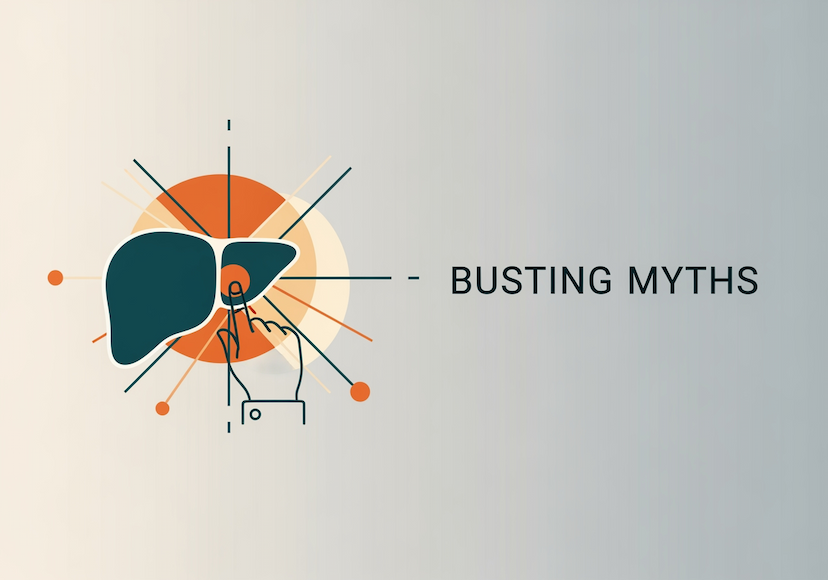
Common Myths About Liver Transplant Doctors Bust Them
Explore evaluations, innovations, hospital comparisons, and global success insights for
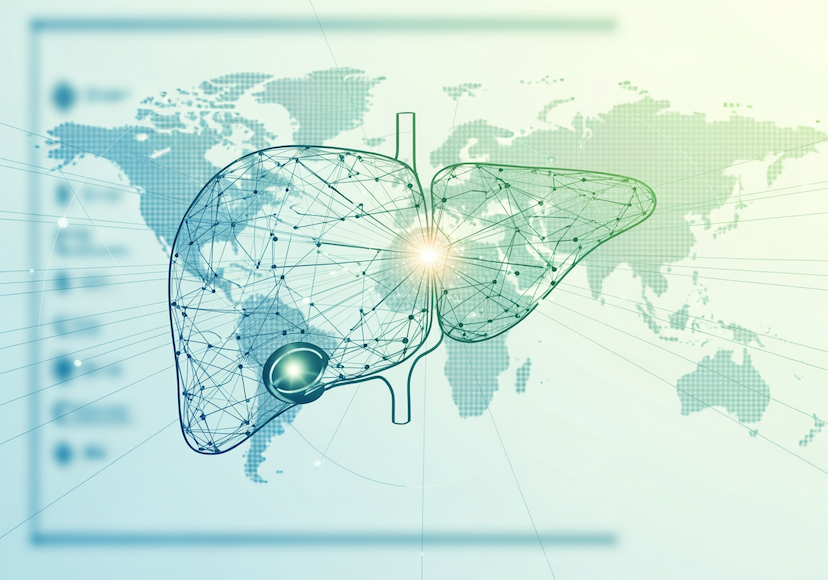
How Healthtrip Coordinates Cross-Border Medical Records for Liver Transplant
Explore evaluations, innovations, hospital comparisons, and global success insights for
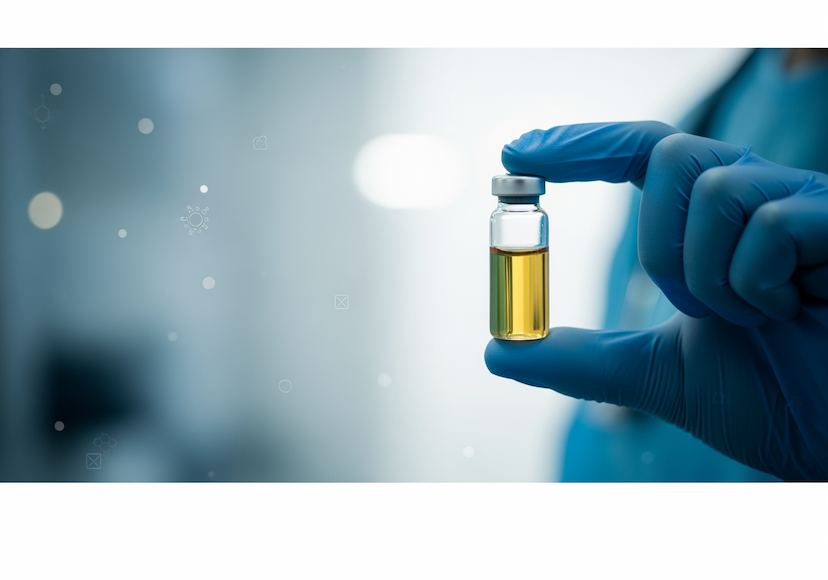
Top Pre-Surgery Tests Required for Liver Transplant
Explore evaluations, innovations, hospital comparisons, and global success insights for
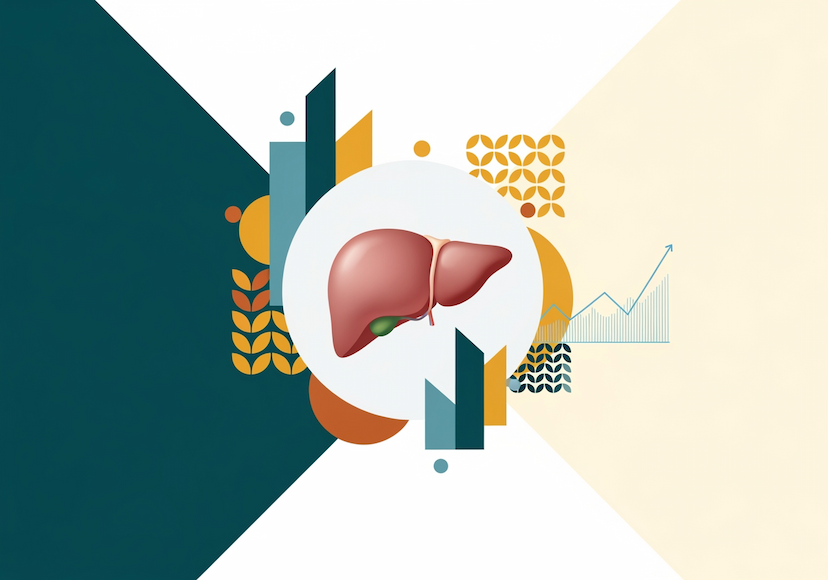
Why India Leads in Affordable Liver Transplant Analysis
Explore evaluations, innovations, hospital comparisons, and global success insights for

Patient Satisfaction Scores for Liver Transplant at Healthtrip Partner Hospitals
Explore evaluations, innovations, hospital comparisons, and global success insights for

How to Choose the Right Hospital for Liver Transplant Using Healthtrip's Criteria
Explore evaluations, innovations, hospital comparisons, and global success insights for










